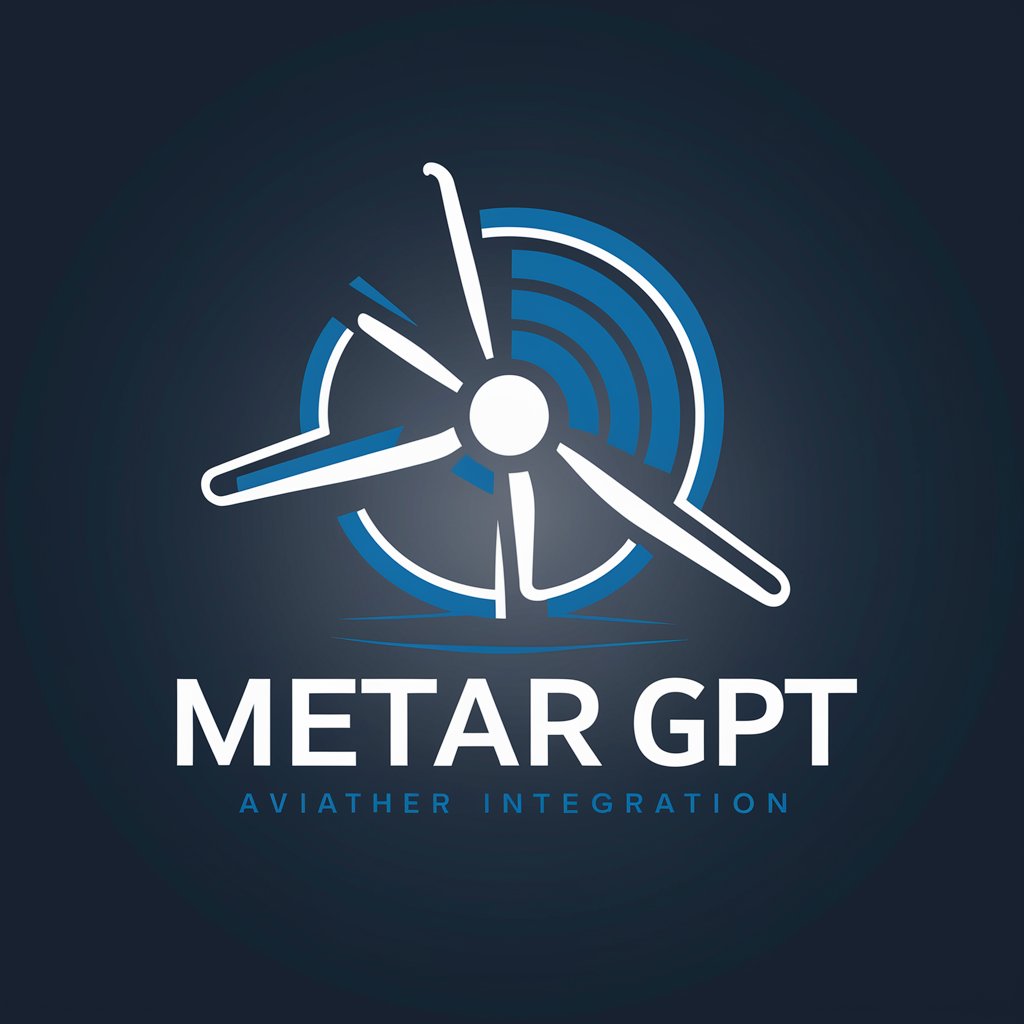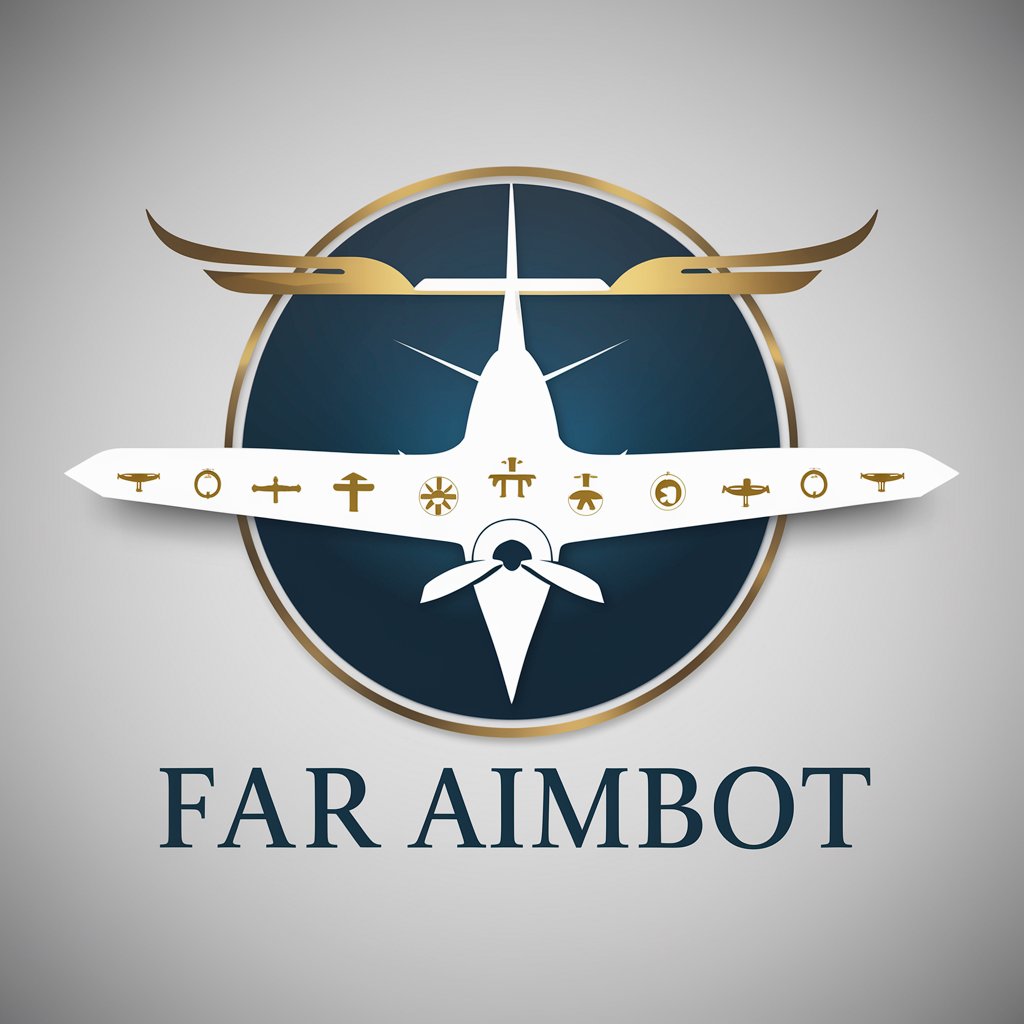7 GPTs for Aviation Safety Powered by AI for Free of 2026
AI GPTs for Aviation Safety are advanced artificial intelligence tools designed to enhance safety protocols, risk management, and operational efficiency in the aviation industry. Leveraging Generative Pre-trained Transformers, these tools offer tailored solutions for analyzing vast amounts of data, simulating emergency scenarios, generating safety reports, and providing actionable insights. Their relevance stems from the ability to process and interpret aviation-specific language and data, making them indispensable for improving safety standards and decision-making processes in aviation.
Top 7 GPTs for Aviation Safety are: METAR GPT,Sky Guardian,Aviator Ace,Chat CFI,Calm Skies,FAR AIMbot,AI Flight Instructor
METAR GPT
Decoding Weather with AI Power

Sky Guardian
Elevating Safety and Efficiency with AI

Aviator Ace
Elevate Your Aviation Knowledge

Chat CFI
Empowering aviation knowledge with AI.

Calm Skies
Soothe your skies with AI

FAR AIMbot
Navigate Aviation Regulations with AI

AI Flight Instructor
Elevate Your Flight Skills with AI

Distinctive Capabilities of AI GPTs in Aviation Safety
AI GPTs tools for Aviation Safety exhibit unique characteristics such as natural language processing, real-time data analysis, and scenario simulation. These features enable them to understand and generate aviation-related content, provide technical support, and assist in the creation of safety protocols. Their adaptability ranges from simple automated responses to complex predictive analytics, offering customized support for diverse aviation safety tasks. Special features also include web searching for the latest aviation safety regulations, image creation for training materials, and advanced data analysis for incident investigation.
Who Benefits from Aviation Safety AI GPTs?
The primary beneficiaries of AI GPTs tools for Aviation Safety include aviation professionals, safety analysts, and regulatory bodies. These tools are equally accessible to novices seeking to understand aviation safety basics, and to developers or seasoned professionals looking for advanced customization and integration options. Their accessibility without requiring extensive coding skills, combined with the potential for deep technical customization, makes them a versatile asset across the aviation industry.
Try Our other AI GPTs tools for Free
Event Suggestions
Discover how AI GPTs for Event Suggestions revolutionize event planning with personalized, creative ideas and seamless integration, tailored for both novices and professionals.
Playlist Placement
Discover AI-powered Playlist Placement tools, designed to curate personalized music experiences by analyzing listening habits and trends. Elevate your music listening or promotion strategy today.
Restaurant Marketing
Discover how AI GPTs are transforming restaurant marketing with tailored content creation, customer engagement, and insightful data analysis to boost your restaurant's growth.
General Care
Discover how AI GPTs for General Care leverage advanced AI to provide tailored support and solutions in caregiving, health monitoring, and more, making sophisticated care accessible to everyone.
Energy Improvement
Discover how AI GPTs for Energy Improvement transform energy management with advanced data analysis, predictive insights, and sustainable solutions.
Product Engineering
Discover how AI GPTs transform Product Engineering with intuitive, adaptable solutions for design, analysis, and optimization, streamlining the development process.
Expanding Horizons with AI GPTs in Aviation
AI GPTs as customized solutions in the aviation sector extend beyond safety, offering potential applications in training, compliance, and operational efficiency. Their user-friendly interfaces simplify complex data analyses and integration with existing systems, fostering a culture of safety and innovation. These tools not only address current safety challenges but also adapt to future advancements, making them a pivotal component in the evolution of aviation safety protocols.
Frequently Asked Questions
What exactly are AI GPTs for Aviation Safety?
AI GPTs for Aviation Safety are specialized AI tools designed to support and enhance safety operations in the aviation sector through data analysis, report generation, and scenario simulation.
How do these tools improve aviation safety?
They improve aviation safety by analyzing data for risk assessment, generating safety reports, simulating emergency scenarios, and providing recommendations for safety improvements.
Can non-technical users operate these AI GPT tools?
Yes, these tools are designed to be user-friendly for non-technical users, providing intuitive interfaces and guidance for navigating aviation safety tasks.
What makes AI GPTs adaptable for complex functions in aviation safety?
Their adaptability comes from advanced machine learning algorithms that can be tailored to perform a wide range of tasks, from simple data processing to complex predictive analytics.
Are there customization options for developers?
Yes, developers can access APIs and programming interfaces to customize and integrate the tools with existing systems or to develop new functionalities.
How do AI GPTs handle real-time data analysis?
These tools are equipped with capabilities to process and analyze data in real-time, allowing for immediate insights and actions in dynamic aviation environments.
Can these tools generate training materials for aviation safety?
Yes, through their natural language generation and image creation capabilities, they can produce comprehensive training materials tailored to specific safety protocols and scenarios.
How do AI GPTs contribute to regulatory compliance in aviation?
They help ensure regulatory compliance by staying updated with the latest safety regulations and guidelines, analyzing compliance levels, and generating reports for regulatory bodies.